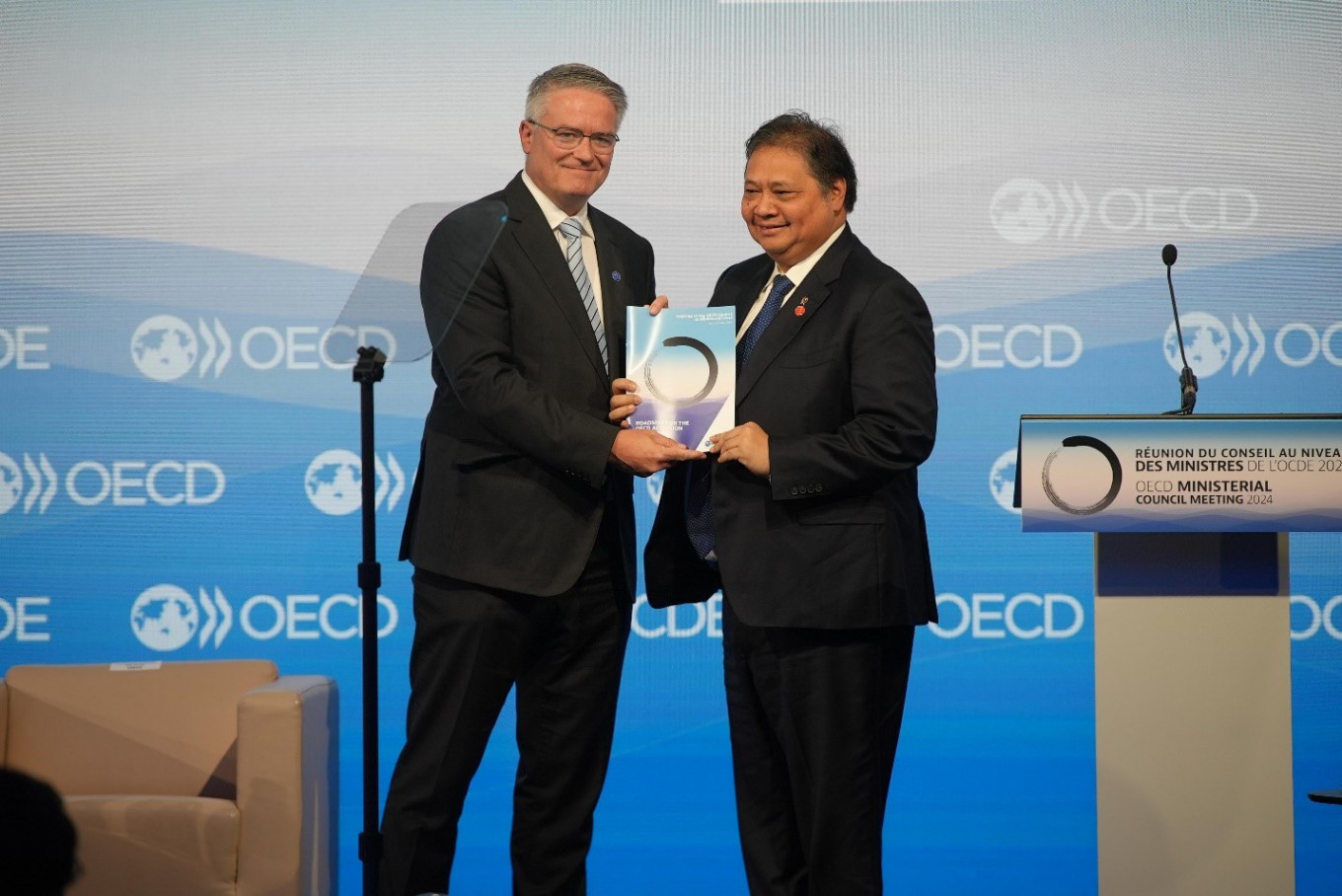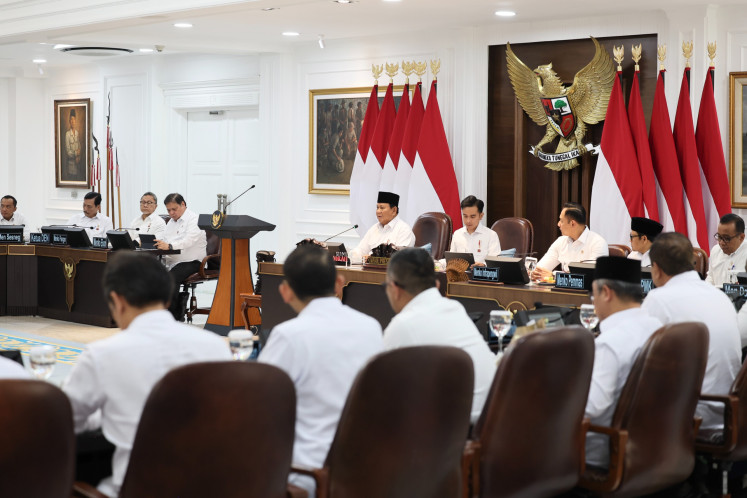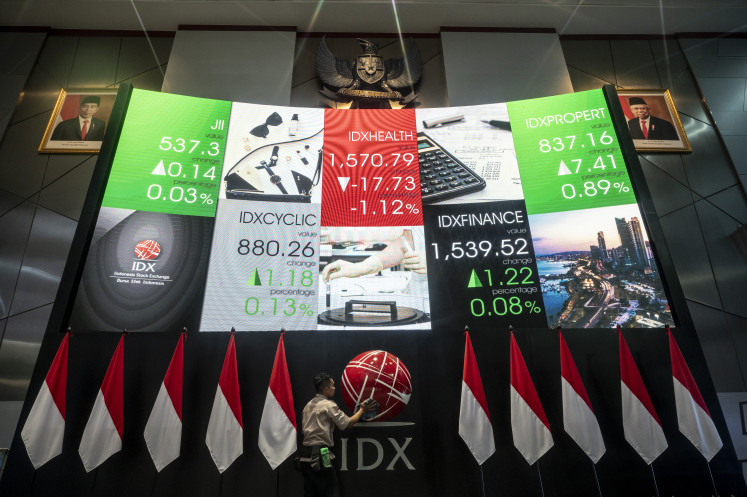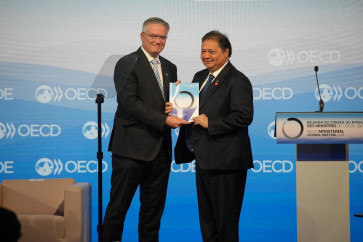Popular Reads
Top Results
Can't find what you're looking for?
View all search resultsPopular Reads
Top Results
Can't find what you're looking for?
View all search resultsOffensive charm and the steep road to OECD accession
Indonesia still grapples with widening wealth inequality across various dimensions, including rural-urban, gender, region, educational attainment and age group disparities.
Change text size
Gift Premium Articles
to Anyone
T
here is a sense of pride when a developing country like Indonesia begins a formal discussion about joining the Organization for Economic Co-operation and Development (OECD) through its accession process.
This marks a significant achievement in Indonesia’s economic performance since emerging from the debris of the financial crisis in 1998. It is also in line with the Golden Indonesia vision 2045, through which Indonesia aims to join the ranks of high-income countries by then.
The formal accession process began in February of this year and in early May Coordinating Economic Minister Airlangga Hartarto received a road map for Indonesia's OECD accession process during the organization’s ministerial-level meeting in Paris. The road map lays down a technical review by the OECD in seven policy areas, including structural reform, trade and investment, inclusive growth, governance, environment, digitalization and infrastructure.
President Joko “Jokowi” Widodo has issued Executive Decree No. 17/2024, which provides a legal basis for the government to take necessary measures to support accession to the OECD. However, despite the offensive charm of both parties, Indonesia's road to meeting the accession target in three years will be steep for three main reasons.
First, domestic regulations need to be harmonized with the OECD’s standards and best practices. Although harmonizing regulations could affect various sectors, let us use one visible indicator: the service trade restrictiveness index (STRI).
Developed by the OECD, the STRI measures how restrictive a country's regulations are in allowing the trade of 22 service sectors, ranging from professional services like legal, accounting, or architecture services to broadcasting, commercial banking and transportation services.
The OECD’s latest report shows that Indonesia ranked the most restrictive country to trade in services among the observed countries. Indonesia scored 0.4 points, while the average of OECD member states is 0.2 points. Adhering to OECD standards or closing the gap with the average of OECD member states means Indonesia needs to reform many regulations in the services sectors alone in the span of three years.



















